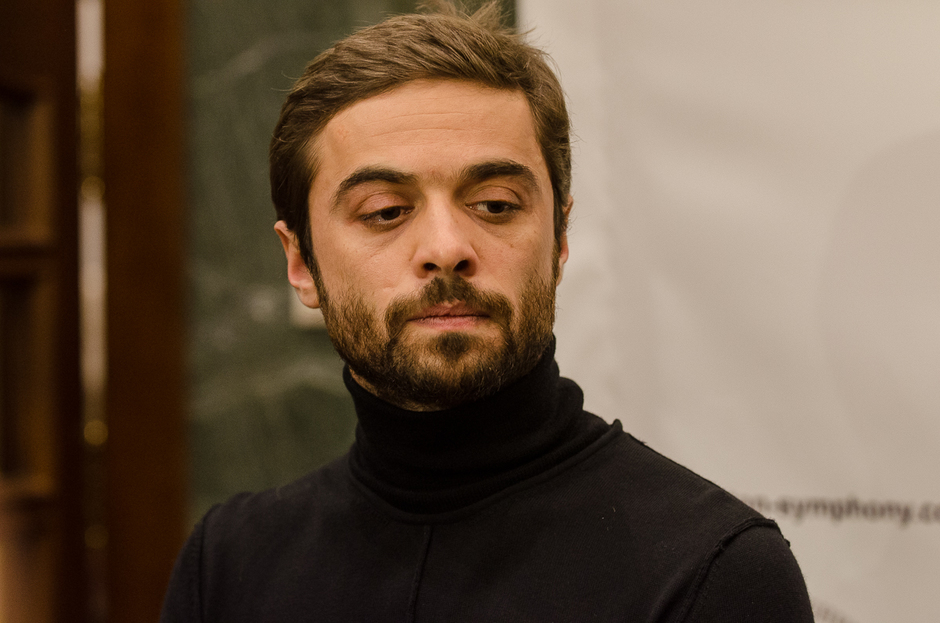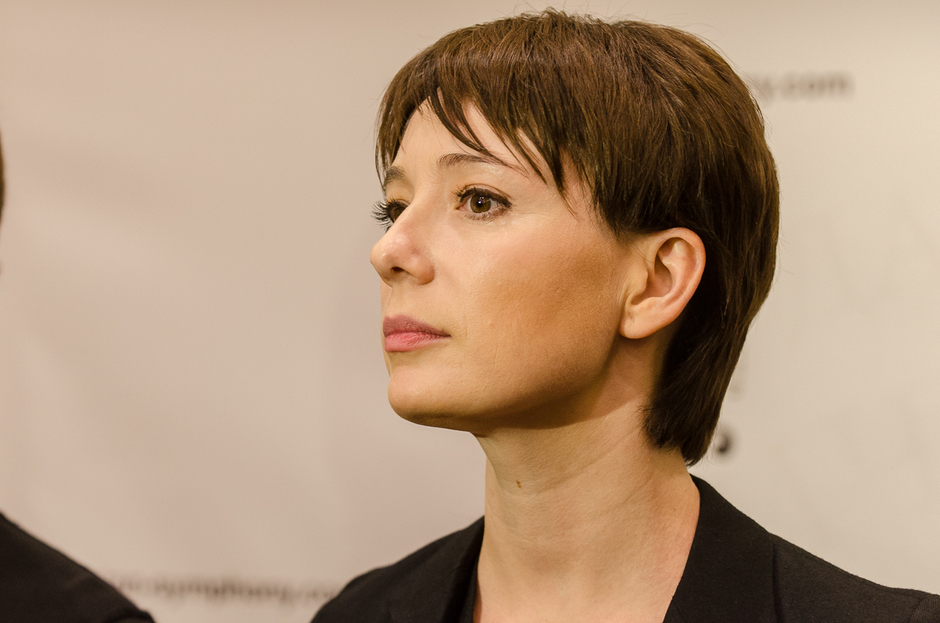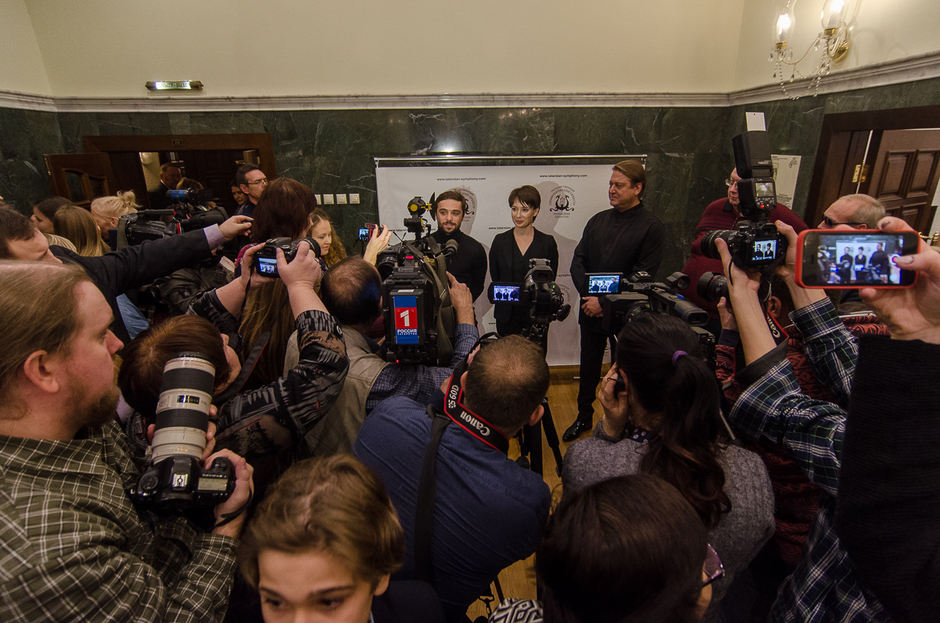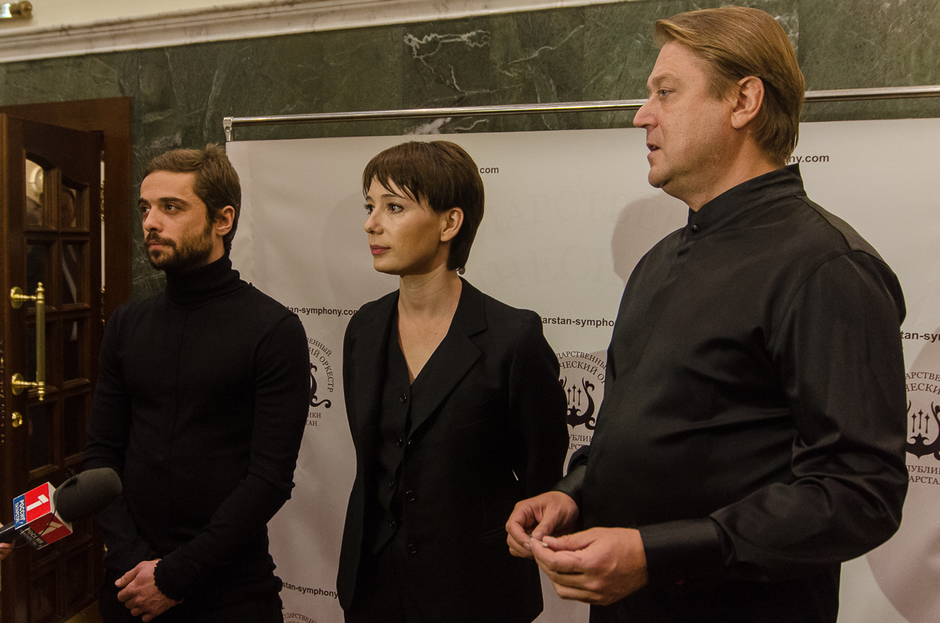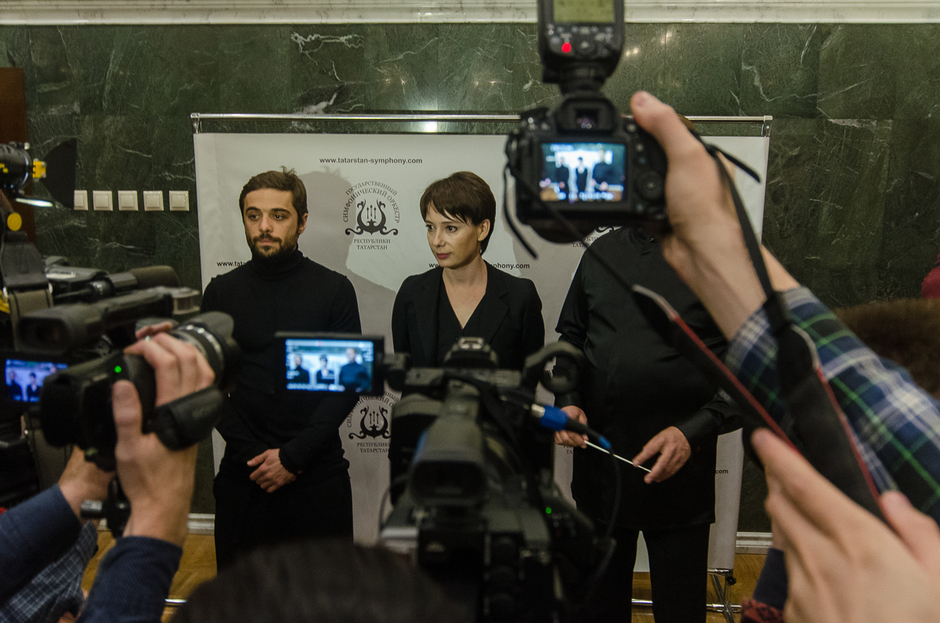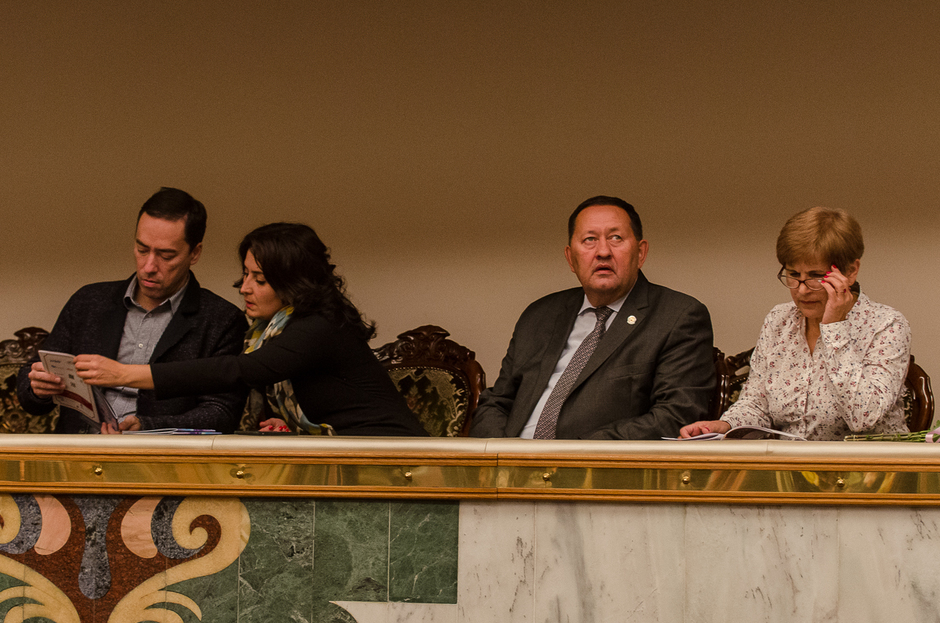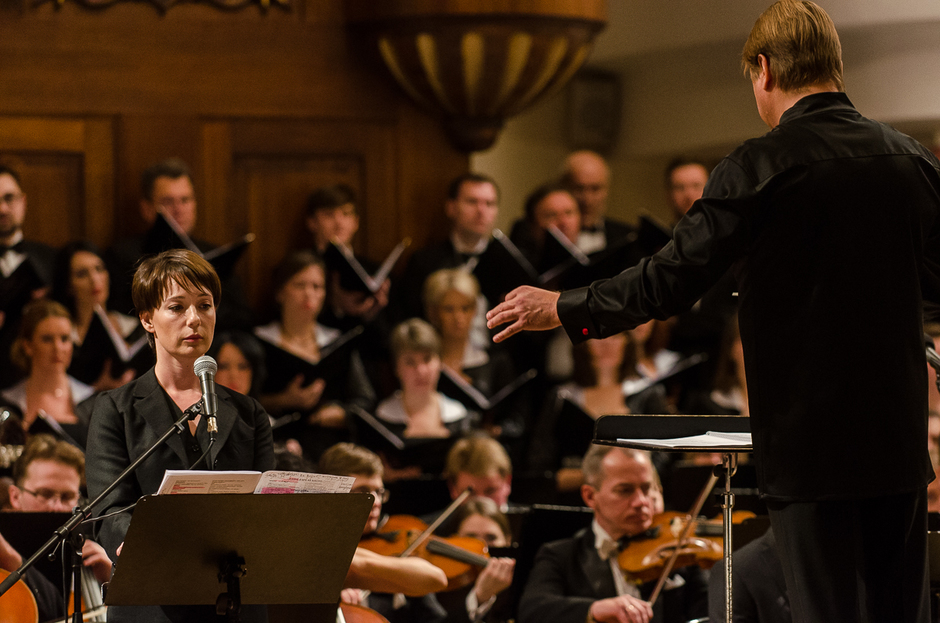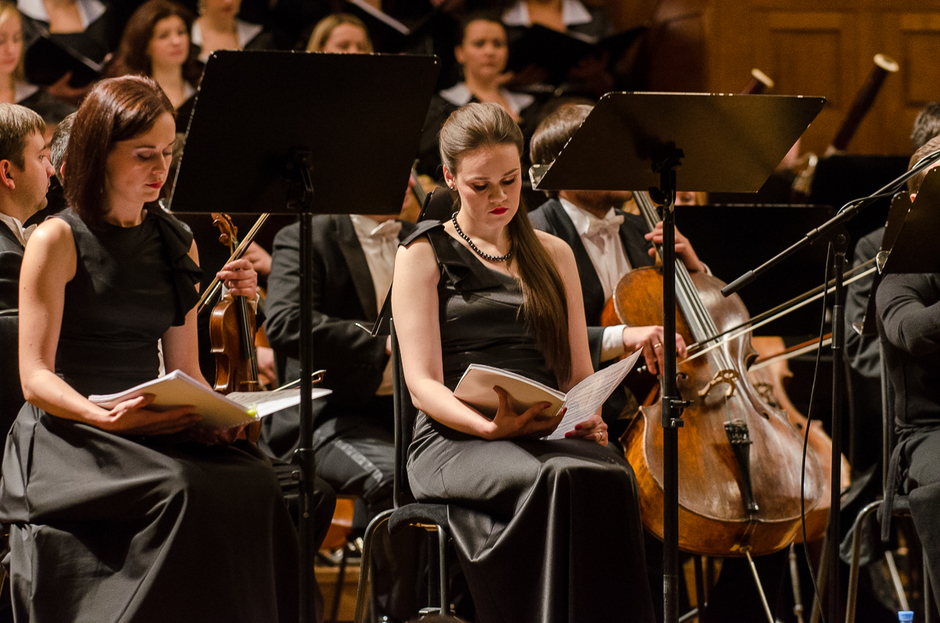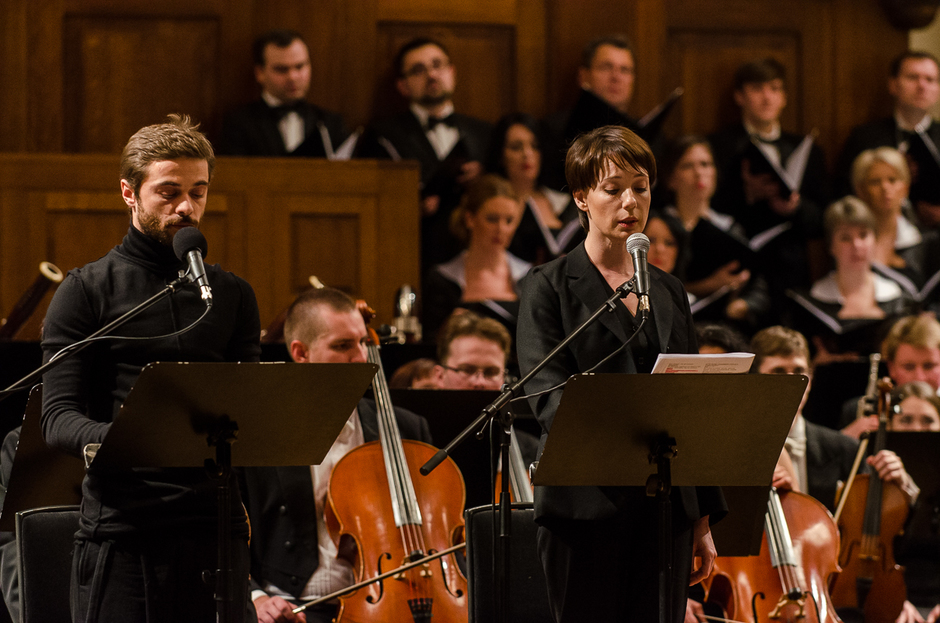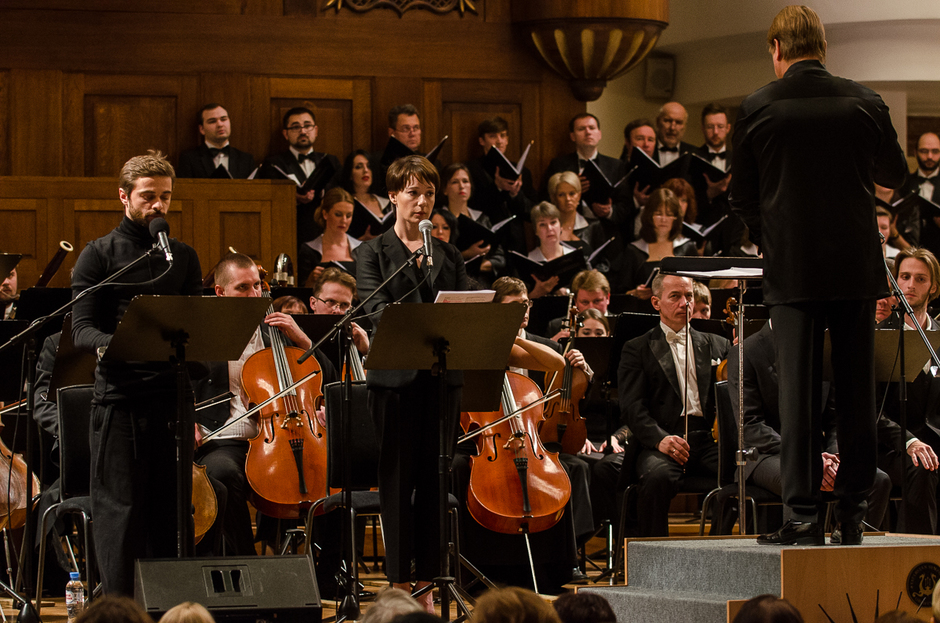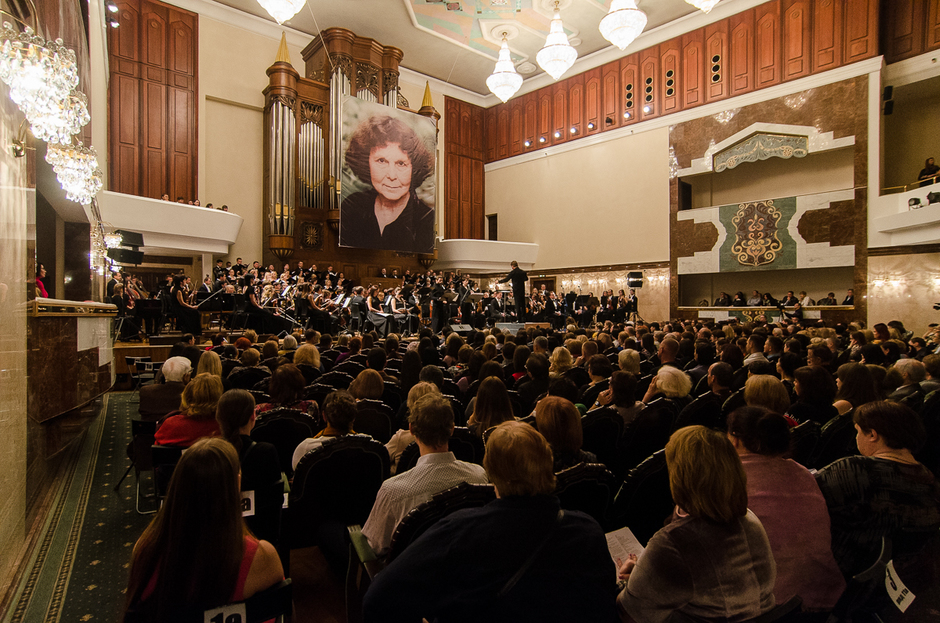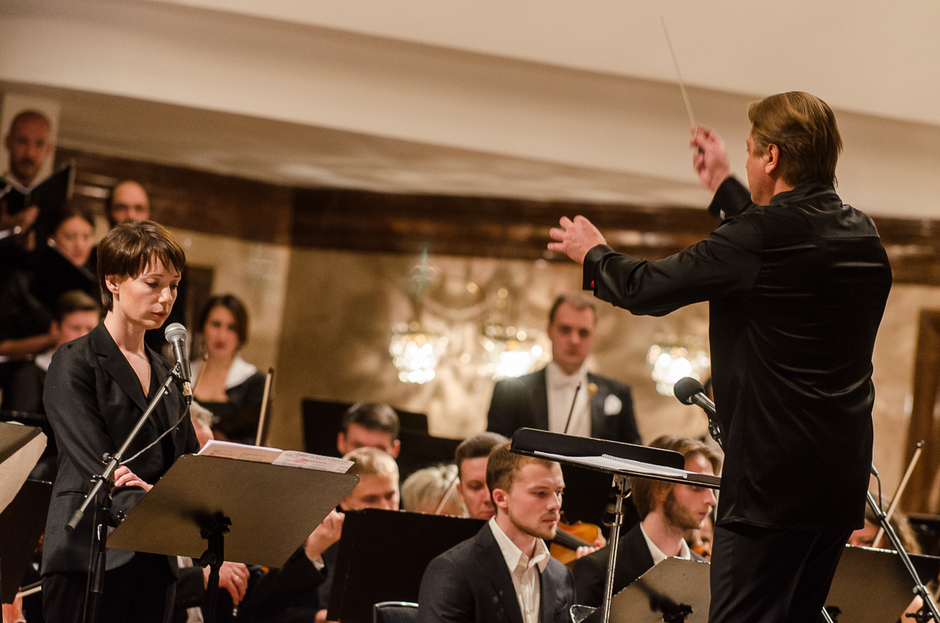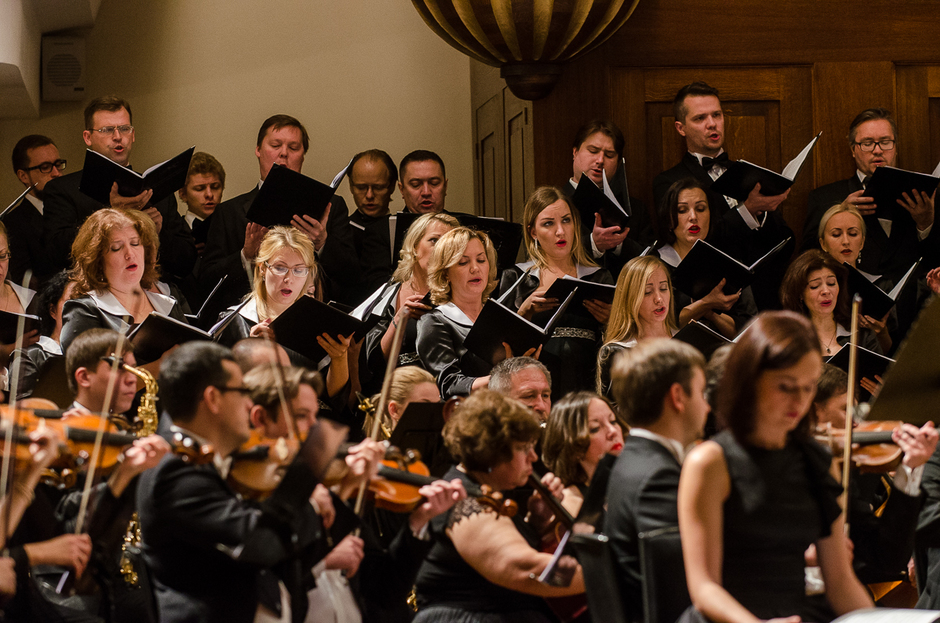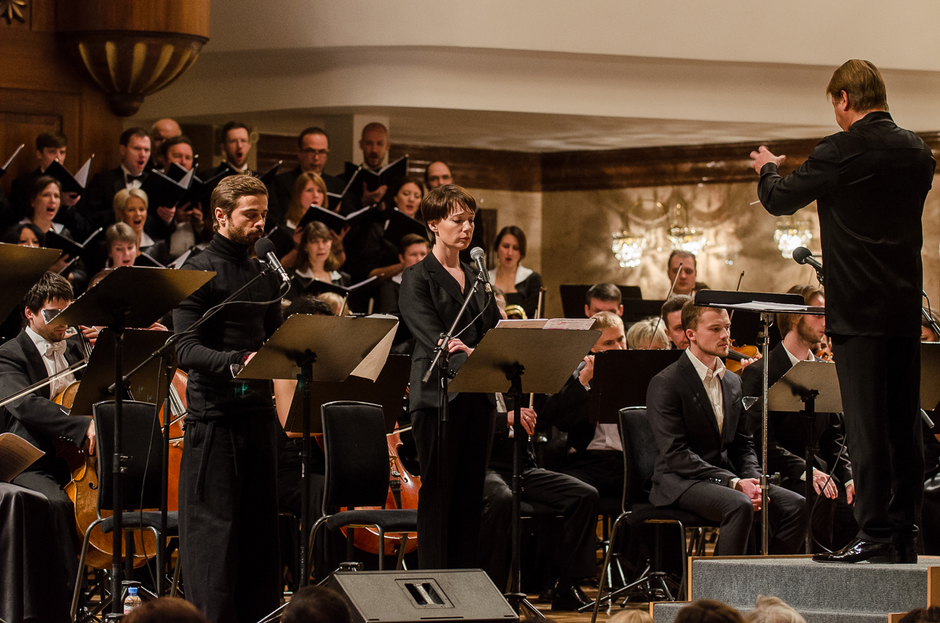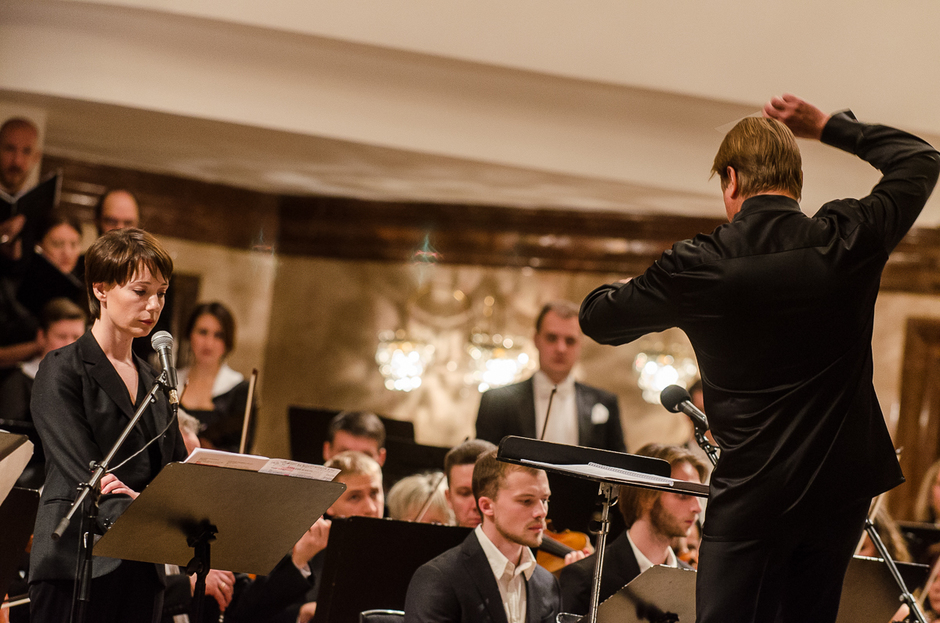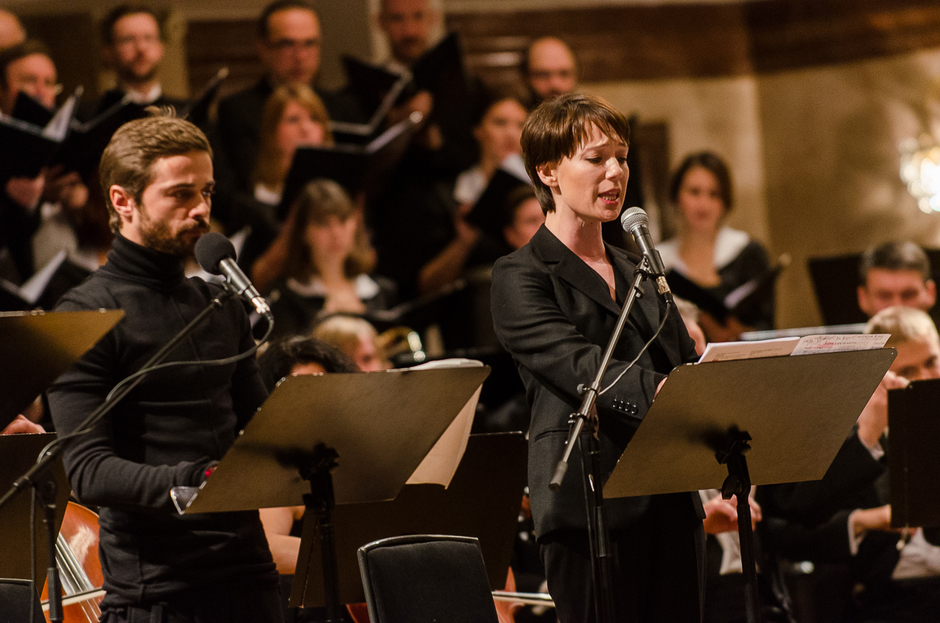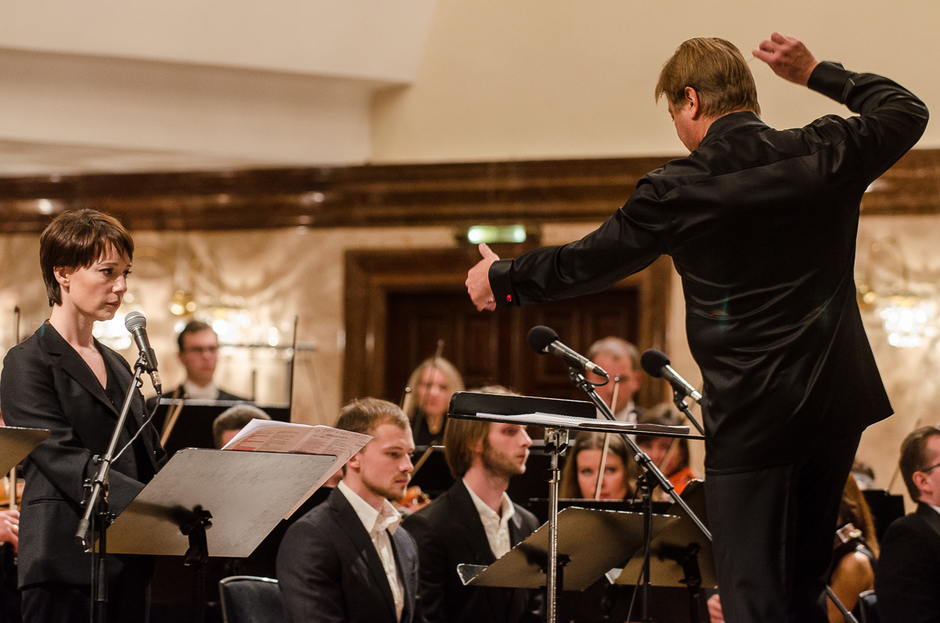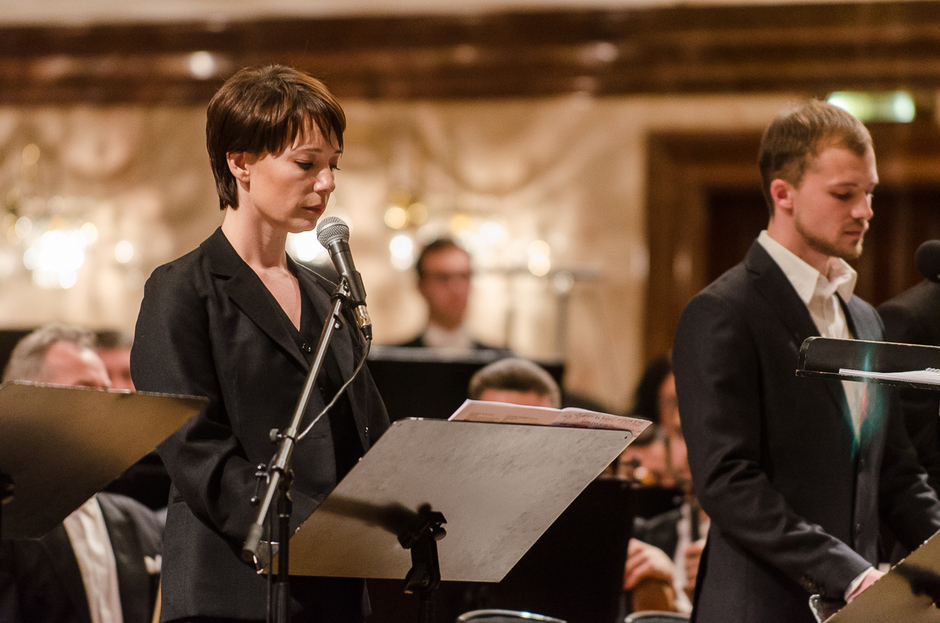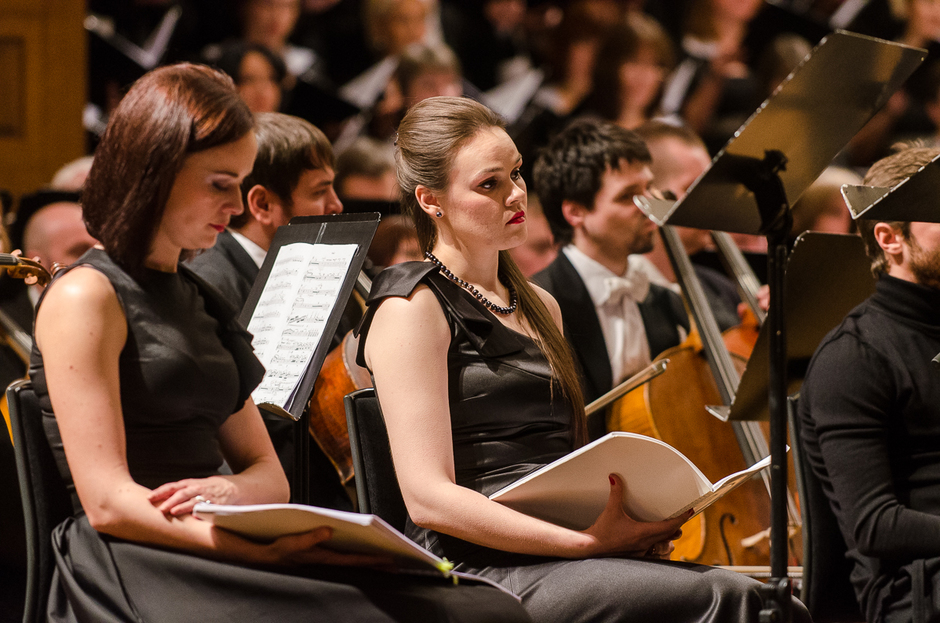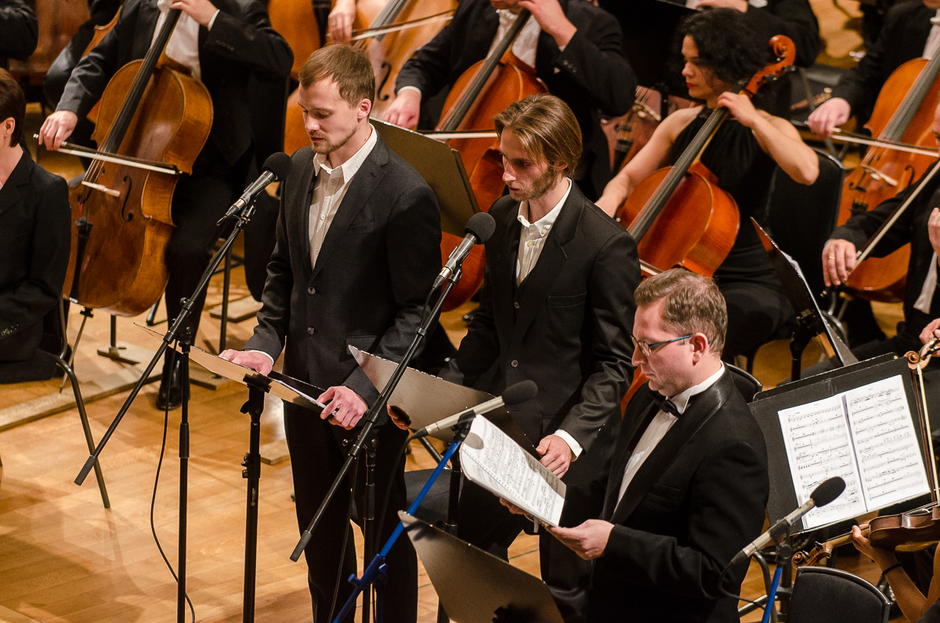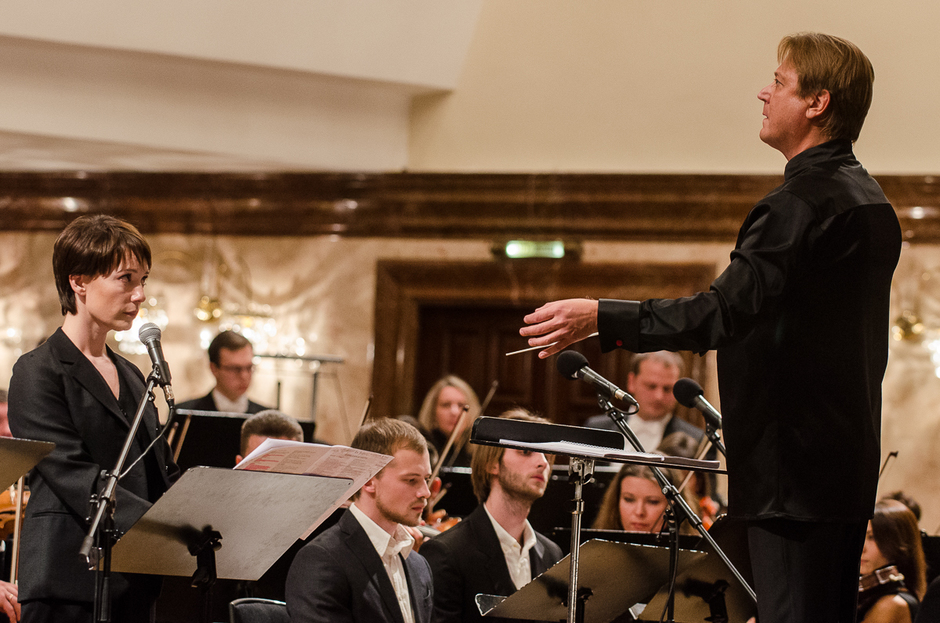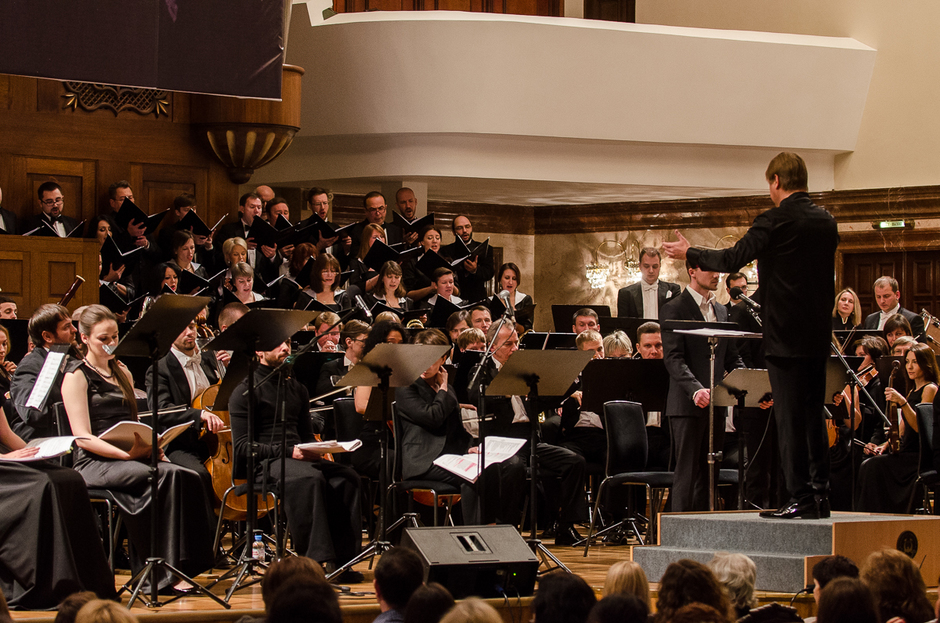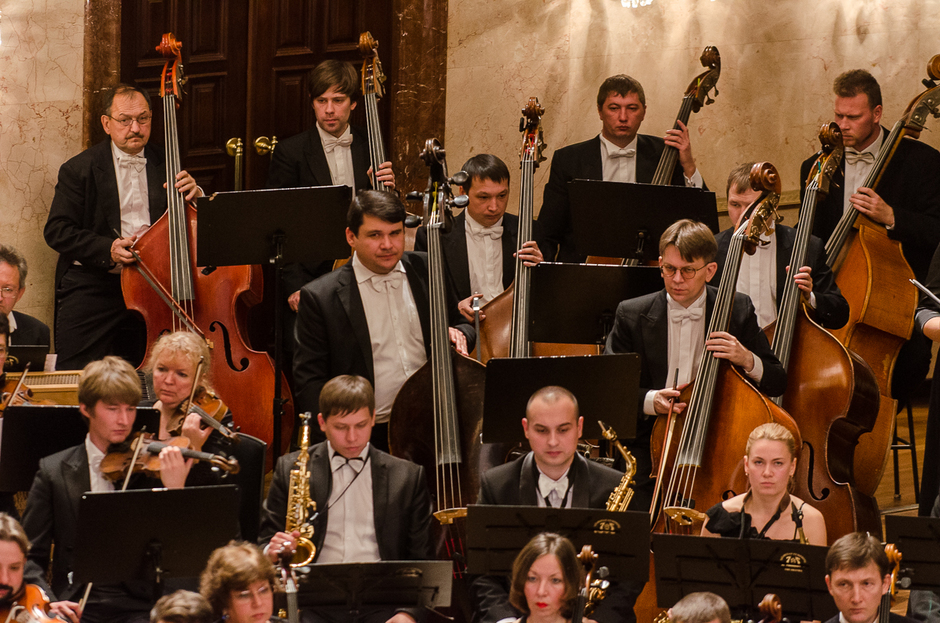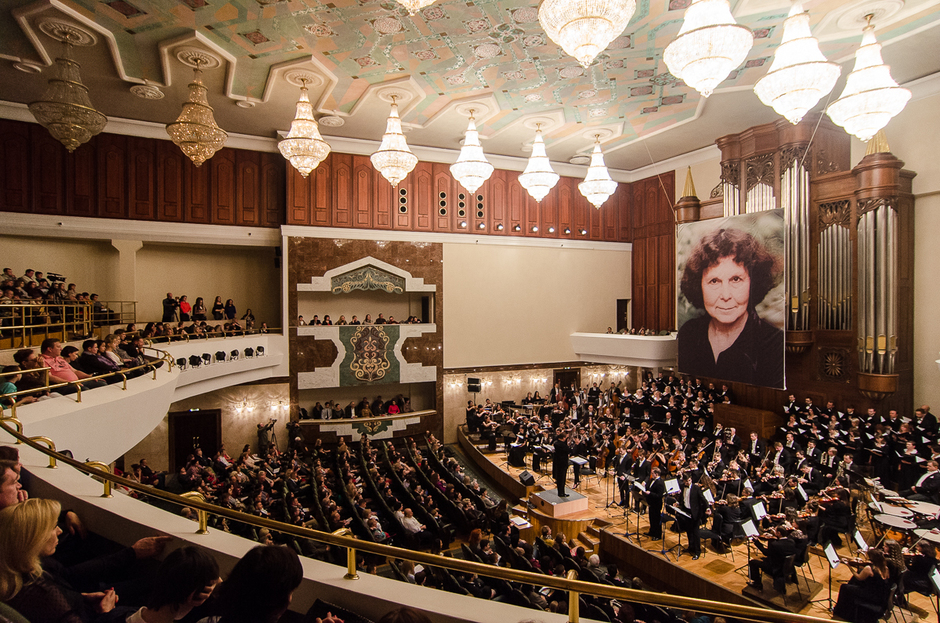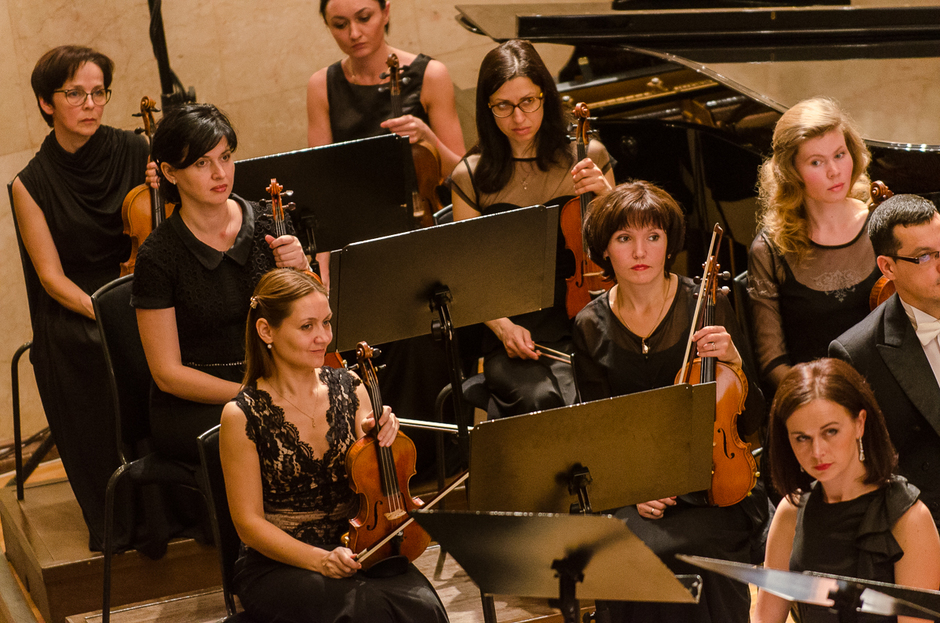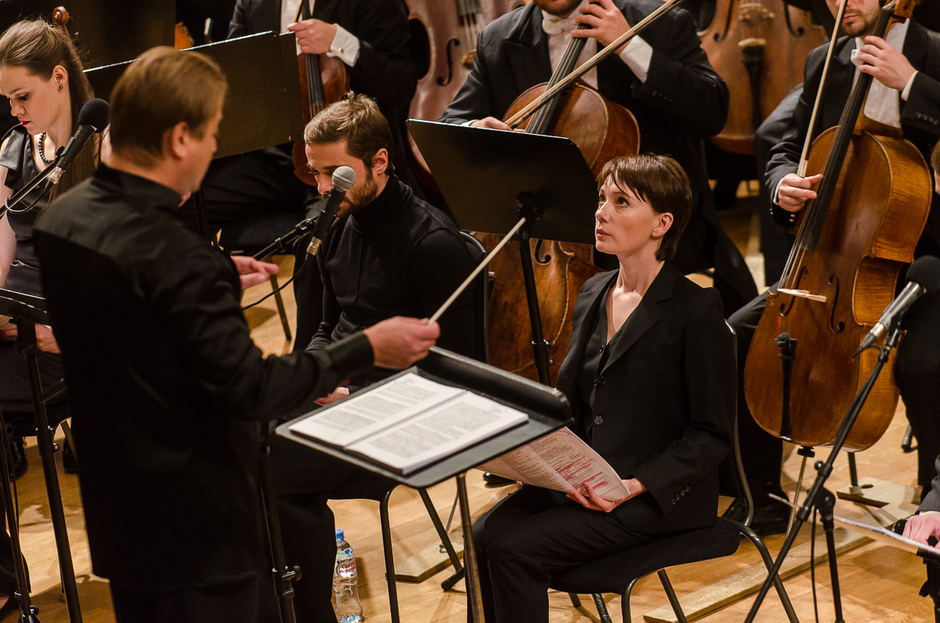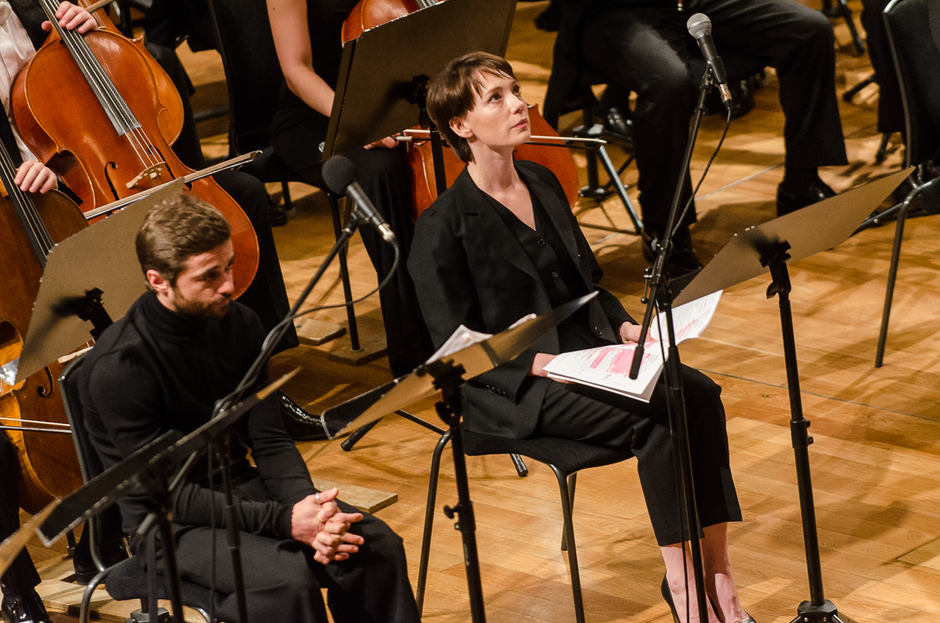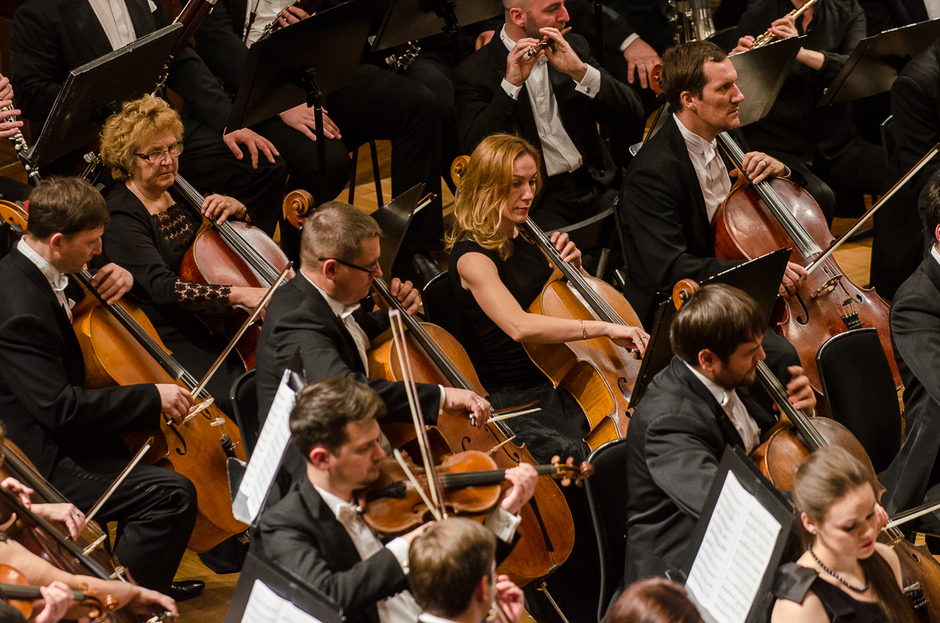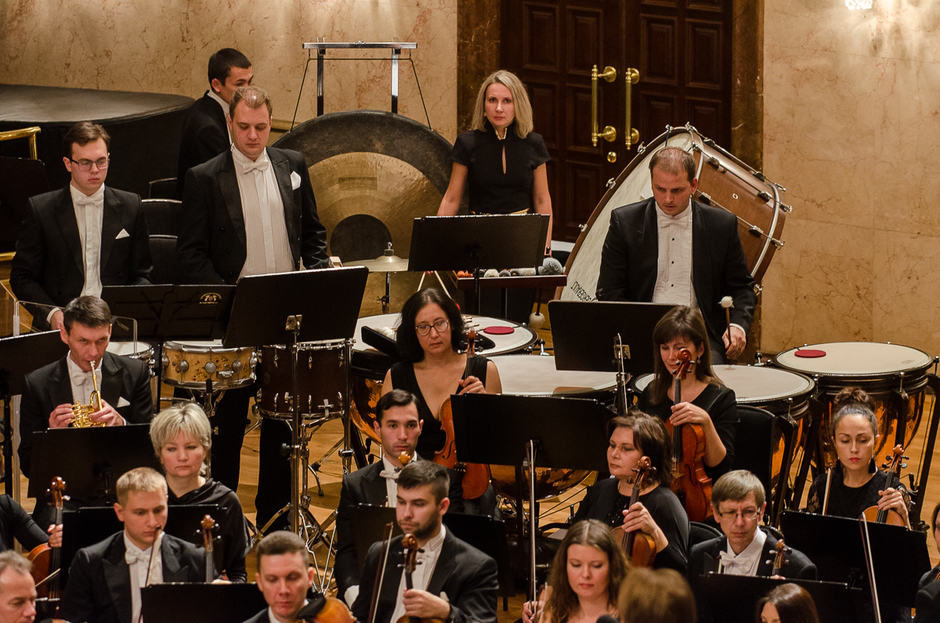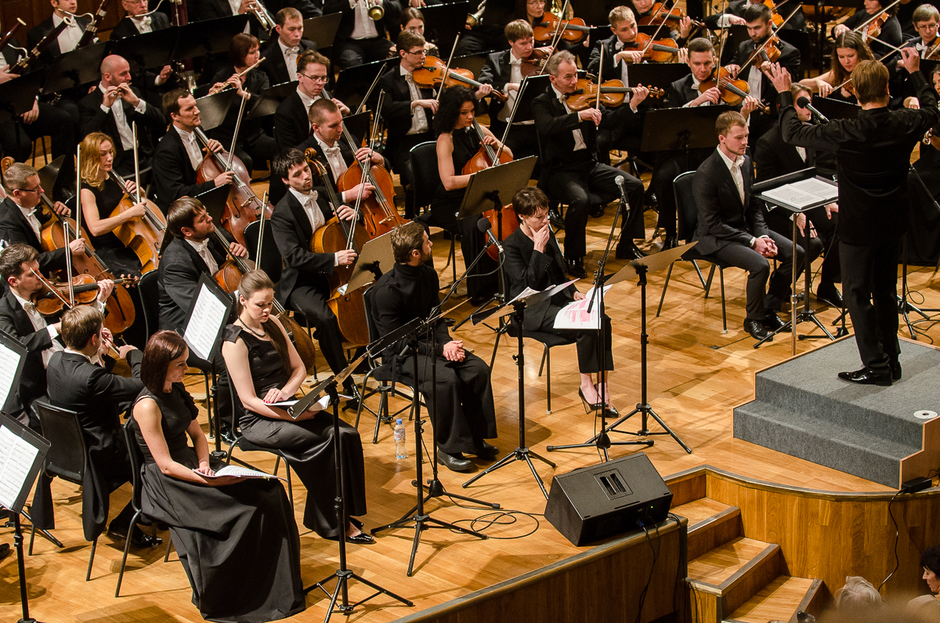‘A heavenly voice’ sounded in Tatarstan National Symphony Orchestra
The International Contemporary Music Festival Concordia named after Sofiya Gubaidulina has recently been opened at the Saydashev State Great Concert Hall. It has been held in Kazan for the sixth time. This time, the Tatarstan National Symphony Orchestra prepared for the music lovers a concert in a new format. The correspondent of Realnoe Vremya attended the festival.
A person from a banknote
For the start of the festival (this year it's kind of special), it was chosen a virtually unknown to the Kazan citizens an oratorio of the French-Swiss composer and critic Arthur Honegger's Jeanne d'Arc au bûcher. The peculiarity of the festival this year is the 85th anniversary of our great compatriot, after whom the fest is named. The fact that the oratorio of Honegger has been put on the opening poster in some way emphasizes the integration of Gubaidulina in the world musical process, because her music was born not in a vacuum, and, of course, has been prepared by the composers predecessors.
Honegger, a Swiss, born in France, was a supporter of 'new music', being strongly influenced by the art of Igor Stravinsky, who was a friend of Jean Cocteau, one of the greatest composers of the last century. His music is often compared to the novels by Hemingway and the paintings by Picasso, it reflects all the important topics of the century — fear and despair before the war, concern for the future of humanity.
The tragic worldview is typical of Honegger, it is reinforced by religious orientation of the composer — he was a Protestant. In the oratorio Jeanne d'Arc au bûcher the worldview of the author is clearly seen, but the work is not religious in the full sense of the word. Through an individuality of the maid of Orleans, the author comprehends the way of a person to God, this most complicated subject, during the discussion of which the religious philosophers of the world broke lances.
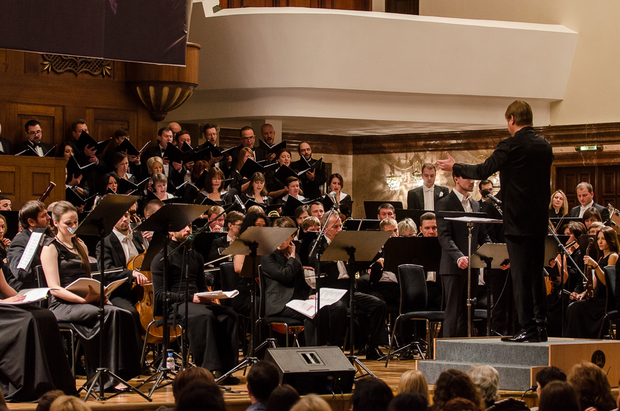
In order to perform the Honegger's oratorio, the orchestra should be honed to some 'impression' and the ability to isolate the nuances that, leaping ahead, the TNSO succeeded in. Jeanne d'Arc au bûcher was written for orchestra, choir, readers and soloists. The artistic director of the orchestra of Tatarstan Aleksander Sladkovsky gathered a cohesive team: soloists – the dramatic actors Chulpan Khamatova and Ilya Glinnikov, vocalists – Nadezhda Gulitskaya, Polina Shamaeva, Vyacheslav Vorobyov, the academic big choir 'Masters of choral singing' under Lev Kantorovich.
The Honegger's oratorio, whose portrait is depicted on a banknote of 20 Swiss francs, in the interpretation of Aleksander Sladkovsky, turned out to be ultra-emotional impressionistic painting, where there is tragedy of the situation, the light coming out of a deep and sincere faith in God.
Chulpan Khamatova replaced the girl-scandal
Honegger wrote Jeanne d'Arc au bûcher on the eve of the Second World War. After the occupation of France, the oratorio became extremely relevant — resistance to enemies by Jeanne and Resistance rhymed. France, in spite of everything, felt unconquered. As if the composer guessed, how his country would live in a couple of years after the premiere of his works.
He was suggested the theme of the life, exploit and death of the maid of Orleans by Ida Rubinstein, a girl-scandal, a character of Russian seasons by Diaghilev. She played Jeanne at the premiere in Basel in 1938. In Kazan, the role of Jeanne was entrusted to Chulpan Khamatova. This is not the first experience of the TNSO with the actress, a year ago Khamatova read fragments from Eugene Onegin, while the orchestra was performing scenes from the Opera of the same name by Tchaikovsky.
In the role of Jeanne, Khamatova is organic, touching, but in the background of the tragic, sometimes ironic shrill sound of the orchestra she is a bit superficial. What cannot be said about her partner Ilya Glinnikov. The actress beautifully conveys the desperation of the heroine, but faith is not felt, that faith that led Jeanne. However, it is compensated by the play of the orchestra, the maestro Sladkovsky like 'covers' the actress.
This time, the Tatarstan orchestra and its conductor offered the audience a partly new format of concert. Honegger's oratorio, where miracle and area performance merged, where the tragedy is seasoned with a desperate irony, — is like a play, performed without scenery and costumes. It is like a musical 'reading' of the play, which is popular now format in drama.
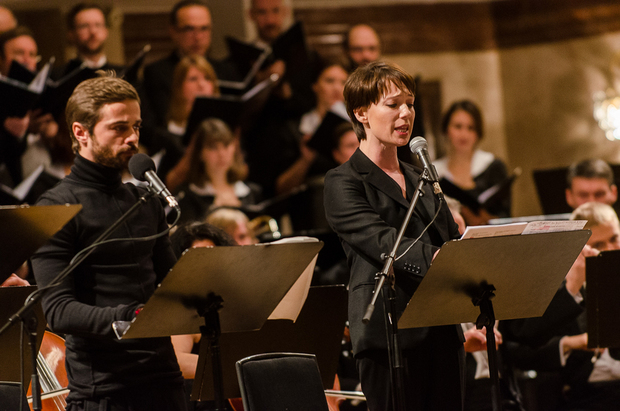
'God is stronger than all'
The first bars of the music are dense and thick. They are like the smoke from the fire seemed to envelop the hall. The orchestra and conductor are getting a little detached, they bring us into this space of tragedy, where the main characters — not characters of the oratorio, composed to a libretto by poet-symbolist Claudel, but they. Because the music here is more expressive than the text, and this is due to the playing of the orchestra.
Eleven episodes of the oratorio — eleven different pictures, different conditions that Jeanne has to go through, through fear, despair, horror, to come to a light thought: 'God is stronger than all.' A little girl from Lorraine once felt herself strong and confident that she's in charge of their country. The saints Catherine and Margaret reinforced her in that, but people tend to look for the background in the most pure thoughts. Jeanne did not despair, her faith only strengthened, and the stake in Rouen was the point of her ascension. Her ascension to God.
Music of Honegger, performed by the TNSO is the way, hard, but light. It seems that the conductor himself has experienced everything — fear of Jeanne, her doubts and her struggles, and her triumph over the momentary disbelief. Taking the orchestra with him, he seems to paint one painting after another — the despair of the French people in the devastated country, the farce of the trial of Jeanne, a picture of people's life 'The King headed to Reims'. The stake in Rouen, where the flame covers Jeanne, but people curse the witch, but then bless the righteous.
All work of Aleksander Sladkovsky in the oratory is the work of a high degree of polarity: from semi-tones, from a hint to a sharp, passionate strokes, to the marching theme 'There is joy above everything'. The joy that there is God that is stronger than all, and He is love. Love, its embodiment in life — that's the main idea of the oratorio of Honegger in the interpretation of Aleksander Sladkovsky. Not the death of Jeanne, because her physical death is only a step toward eternal life given by God.
The conductor has created a multi-figure, monumental painting, he was like a second 'I' of Jeanne, the same desperate nonconformist. He went through all the way with her to Rouen for a half hours of music of the oratorio of Honegger. He heard in the finale 'a heavenly voice', giving to hear it to the silent, subdued by the greatness of the moment audience in the crowded hall.
